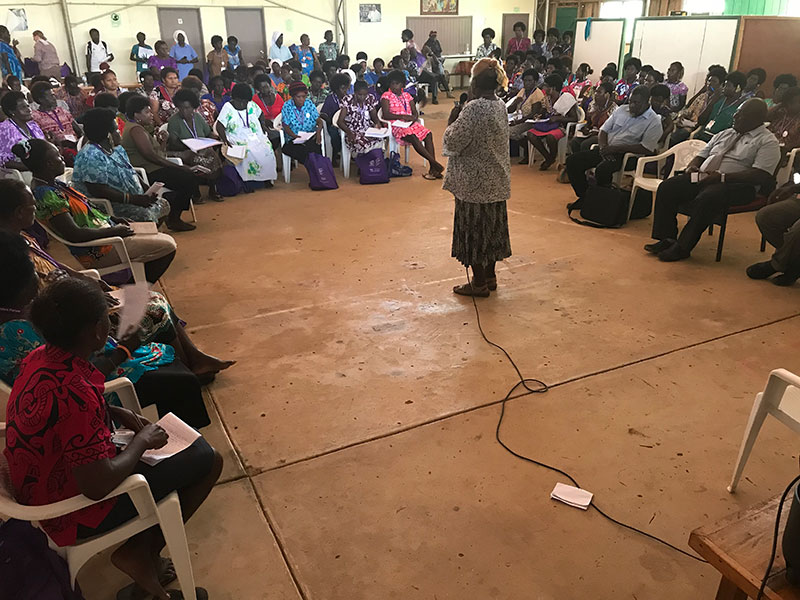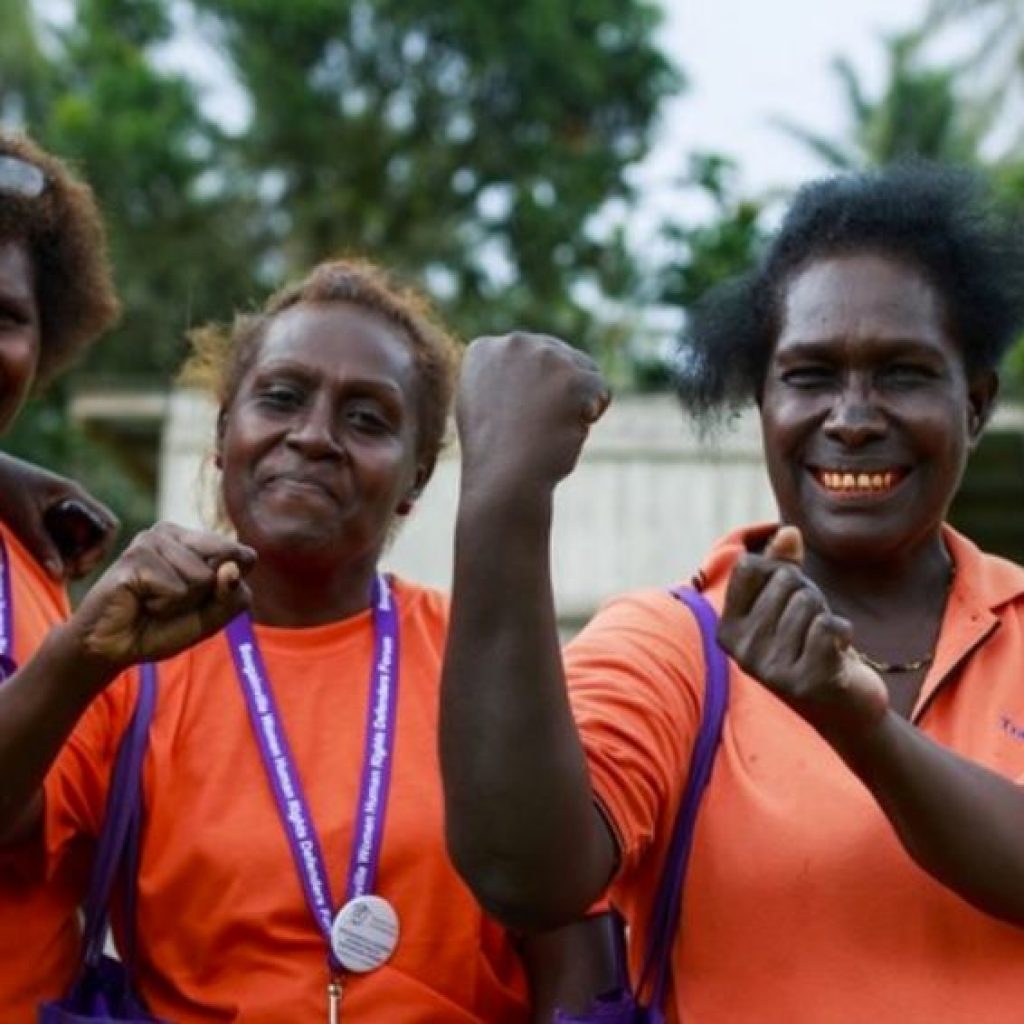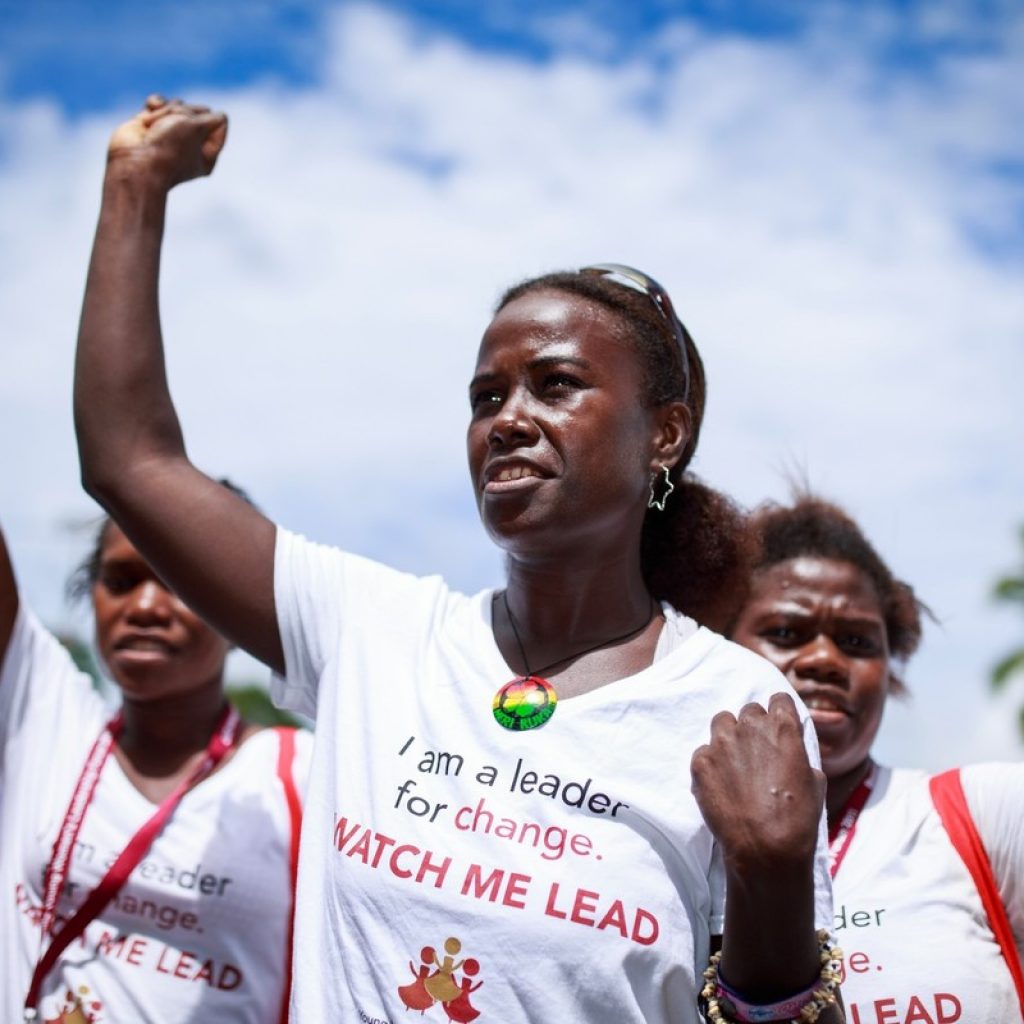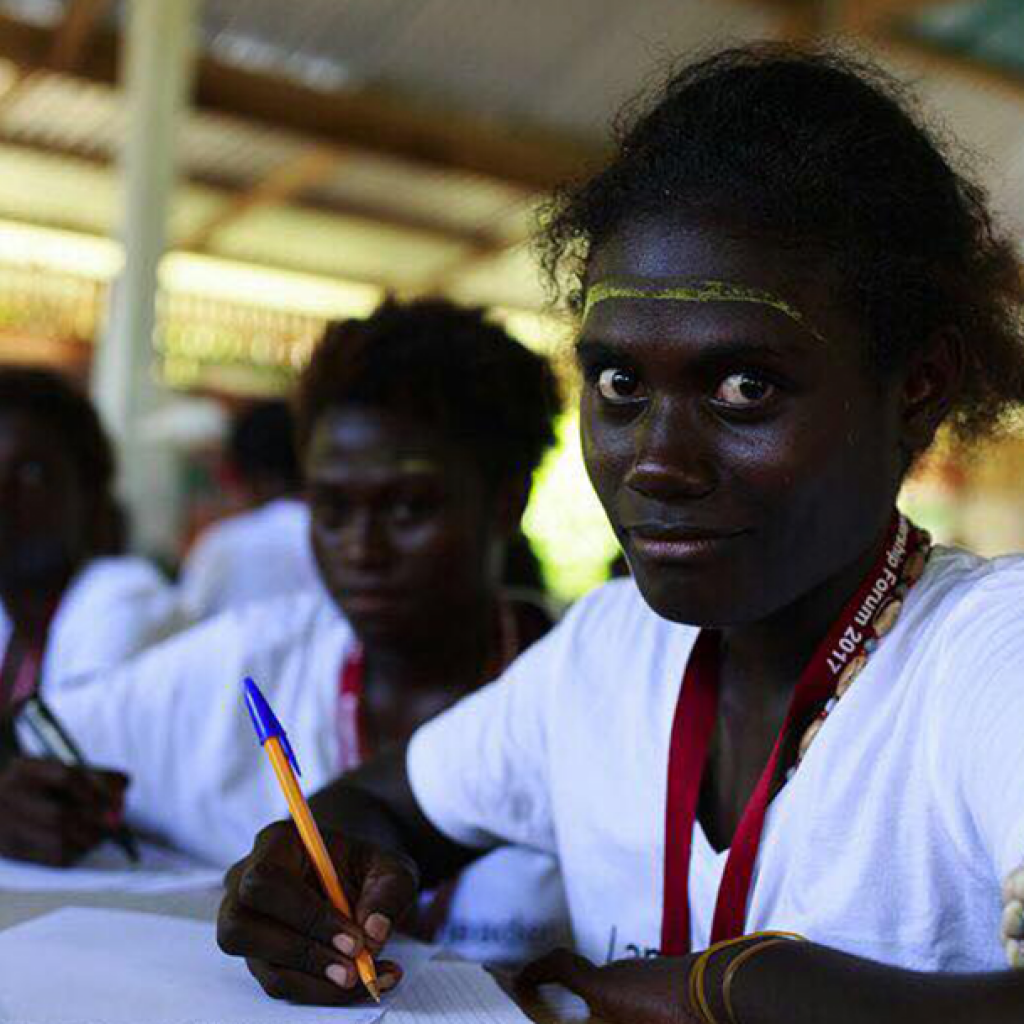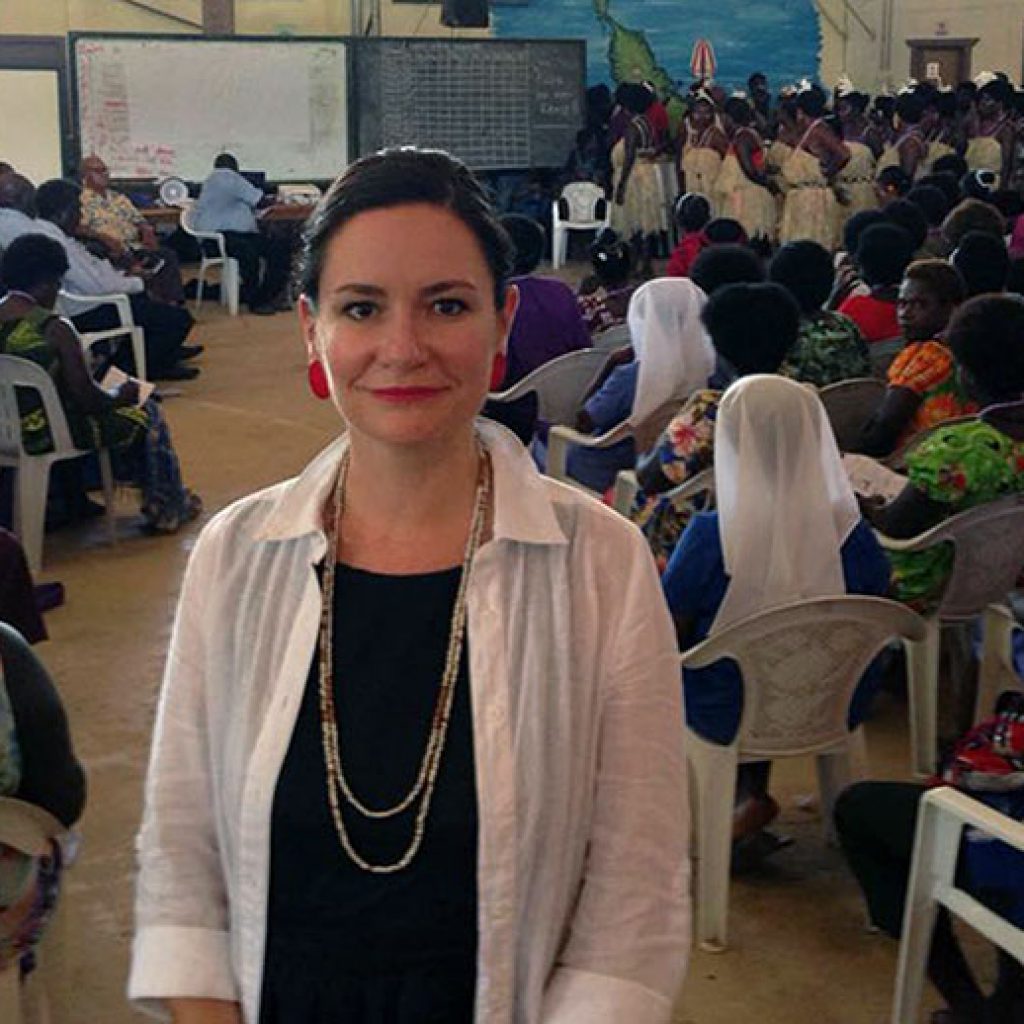
‘Together we are powerful’ – Speech by IWDA CEO, Bettina Baldeschi
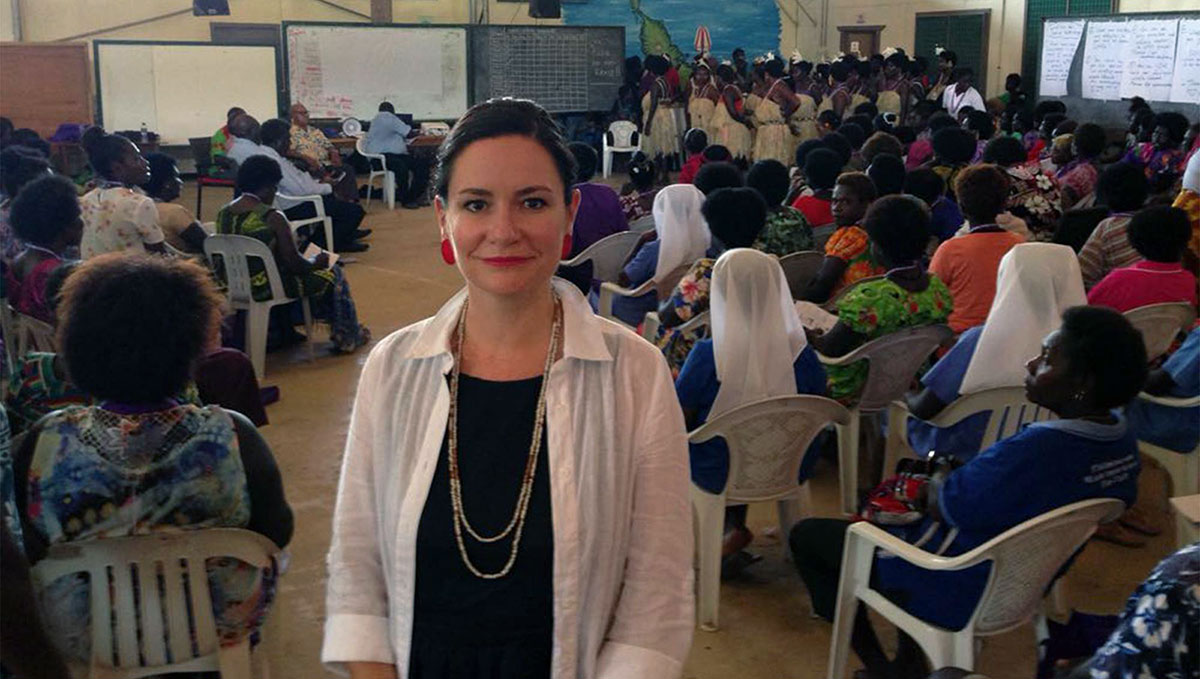
Bettina Baldeschi recently joined almost 200 Women Human Rights Defenders in the Autonomous Region of Bougainville, as they raised their voices for peace and gender equality. Here is an abridged version of the speech she gave at the 2018 Bougainville Women Human Rights Defenders Forum.
It is an extraordinary privilege to stand in this space with so many women leaders.
I want to begin by paying my deep respects, and acknowledging the leadership, resilience, courage and commitment gathered here. And to assure you that I am bringing my leadership, resilience, courage and commitment to stand with you in the work you do.
Working together, sharing our skills and experience, doing more together than we could do on our own. This is a truth at the heart of women’s organising for change. Together we are powerful.
This remarkable gathering coincides with three important international days: International Day of Rural Women, World Food Day and International Day for the Eradication of Poverty.
Each of these days is an opportunity to focus on the contribution women make every day, but also the constraints they face, and the personal price women pay for the social and economic contribution they make to their families and communities.
These international days are also an opportunity to draw the links between the situation of women in rural areas, women’s role in food security and gender inequality and poverty.
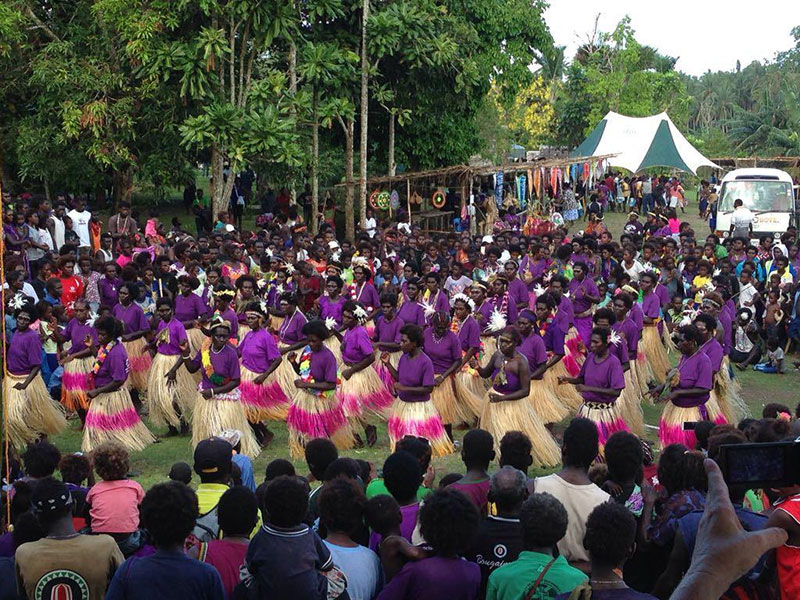
Making these connections is important
Women and girls face diverse challenges across the globe. Women in rural areas often face different and additional challenges from those in urban areas.
This year, the UN Commission on the Status of Women (CSW) had a focus on rural women. The Report of the Expert Group Meeting to prepare for CSW62 referred to ‘a stark and growing urban-rural divide’.
Women in rural areas around the world have more limited employment opportunities, more limited access to infrastructure including energy, more limited access to water and sanitation, more limited access to services including health and education, and greater isolation from markets.
It’s no surprise, then, that poverty levels are typically higher in rural areas, around the world.
Women continue to bear major responsibility for unpaid household and care work, even as we do paid work. The time and labour burdens associated with lack of infrastructure is often heaviest in rural areas.
A survey undertaken by our partner Voice for Change, in Jiwaka Province, highlighted that the slave-like burden of unpaid care is severely impacting on women and girls. They called it ‘violence’.
For women with responsibilities for growing, gathering, providing and preparing food for families, food insecurity is personal, and painful. It doesn’t just affect us as individuals, it affects our families and communities. It affects how we feel about ourselves.
Food security underpins our ability to pursue lives of dignity, to care for those we love, to be healthy, to pursue opportunities. The terrible 2015 drought that affected Bougainville and other parts of Papua New Guinea highlighted the risks of food insecurity in rural areas, and its costs. And it underlined why action on climate change and planning to reduce and manage risk is so urgent.
Now, we must make women’s experiences visible
We urgently need better data to bring visibility to women’s lives and contributions.
Persistent gender data gaps mean women’s lives are often not well reflected in official reporting. This makes it more difficult to argue for priorities that matter for women, to target action where it is most needed.
It’s why IWDA is championing the Individual Deprivation Measure, a new gender-sensitive measure of multidimensional poverty being developed in partnership with the Australian National University and the Australian Government that will transform how we measure poverty to make visible the influence of gender, age, disability and rural/urban location on poverty.
Being able to disaggregate data, including for sex and geographic location, is key to understanding where to focus our efforts for change.
But action can’t wait for better data. We know and see the connections in our daily lives. Our lived experience is a source of data. When data is limited or scarce, it is our stories and lived experience that can help identify priorities.
Which is why women’s leadership and participation in decision-making is so vital. Our lives help link these issues together.
The Sustainable Development Goals make these links too, providing a universal and uniting agenda for change to secure the future for people and planet. It is an agenda that cannot be realised without women’s leadership at its centre.
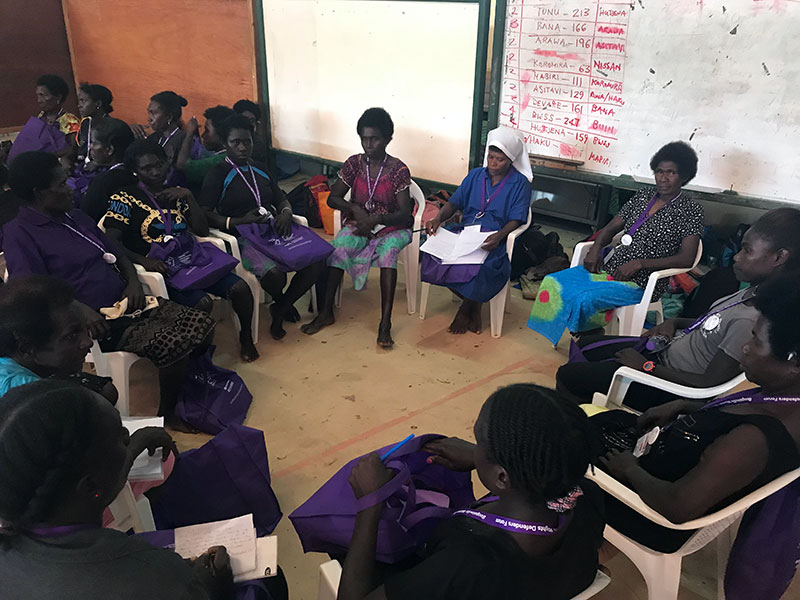
These gatherings remind us that we are not alone
Forums like this help us make the links between issues, between the circumstances of women across all regions of Bougainville and the wider region. And between the issues women see in Bougainville and those facing women in rural and regional Australia, currently struggling with devastating drought.
Gathering together reminds us we are not alone, and that together we are powerful.
Gatherings bring our stories and voices together. They demonstrate why our leadership is needed to drive urgent action for change.
But these gatherings are not just about strategising and planning. They are part of the self-care needed to sustain and renew our work.
This is particularly so for Women Human Rights Defenders, who are leading the provision of support to survivors, and prevention and response to violence against women.
Coming together is a vital part of finding the collective strength and solidarity to continue the work.
And why feminist leadership is so essential for sustainable change. Many women lead. But feminist leaders seek to shift power so that many other women benefit.
IWDA believes that only feminist leadership will create the real, systemic change that transforms the social, political and economic lives of women and girls, to secure the future of people and planet.
Finally, I would like to acknowledge the support of the Australian Government in partnership with the Government of Papua New Guinea as part of the Pacific Women Shaping Pacific Development program: From Gender Based Violence to Gender Justice and Healing.
Thank you.
